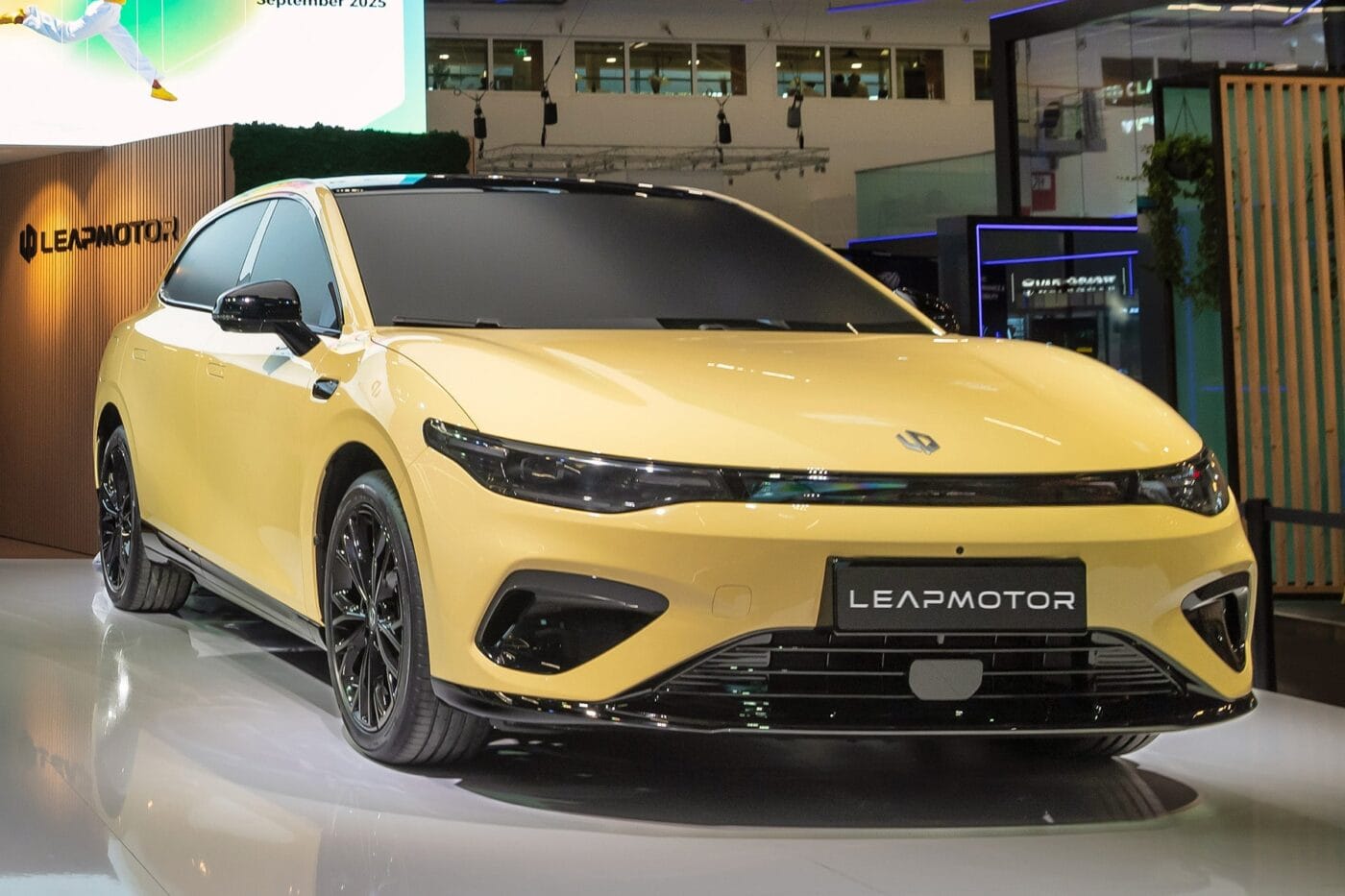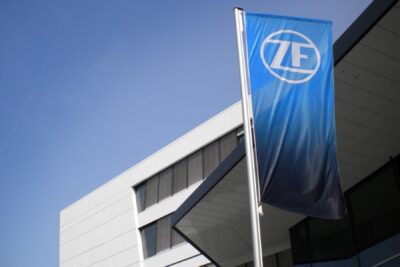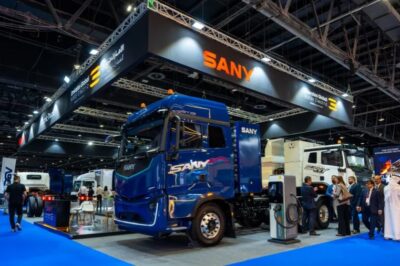1.6 million NEVs: China records unprecedented electric car sales in September
In September, every second vehicle sold in China had a plug: NEV penetration rose to 49.7 per cent. Although the share of electric vehicles in China has remained fairly constant above the 45 per cent mark since spring, it has never been as close to 50 per cent as it was in September. According to data from the Chinese Association of Automobile Manufacturers (CAAM), the previous month was full of superlatives: the 1,604,000 electric cars and plug-in hybrids also set a new record in absolute terms. And within this segment, battery electric vehicles (BEVs) exceeded the one million mark (1,058,000 units) for the first time.
222,000 NEVs were exported in September
NEV sales in September represent an increase of 24.6 per cent compared to the same month last year and 15.0 per cent compared to August. Exports from China are playing an increasingly important role: the number of NEVs exported doubled last month compared to September 2024. However, exports are not continuing to rise compared to July and August – they are stagnating at around 222,000 NEVs (which corresponds to 13.8 per cent of all NEV sales in China; conversely, 86.2 per cent remained in the domestic market).
Exports are included in the statistics because CAAM sales figures include manufacturers’ wholesale sales, which include both domestic sales and exports. As is well known, the New Energy Vehicles (NEVs) included in the statistics comprise battery electric vehicles (BEVs), plug-in hybrids (PHEVs) and fuel cell vehicles (FCEVs); however, fuel cells do not play a significant role in the passenger car sector in China.
Strong year-end surge expected
Prior to the record-breaking September, this year’s monthly figures were all below those for the three months of the fourth quarter of 2024, when China recorded an extremely strong year-end surge. However, the sales curves of the past two years, with their characteristic late upward momentum, suggest that 2025 is also likely to see an increase in the fourth quarter. The September statistics can now be seen as a promising preview of the final quarter.
Although every second car in Chinese wholesale statistics now has a plug, momentum has slowed noticeably: NEV penetration is no longer growing as rapidly as in the past two years, and there have been no major leaps forward in the last five or six months – rather a steady, slow rise towards the 50 per cent mark.
PHEV market loses momentum
Within wholesale sales of new energy vehicles, the majority were clearly BEVs: 1,058,000 units represent the best figure ever: 36.4 per cent more than in September 2024 and 16.5 per cent more than in August 2025. Plug-in hybrids, which also include range extender models (EREV), have recently caught up strongly in China. However, with 546,000 PHEVs sold, sales here rose by only 6.7 per cent compared to the previous year and by only 12.1 per cent compared to August. The trend of plug-in hybrids recording only moderate growth compared to the previous year has been evident since June.
Across all drive types, sales in September totalled 3.226 million vehicles, representing an increase of 14.9 per cent year-on-year and 12.9 per cent compared to August. This shows that while BEVs grew disproportionately compared to the overall market, PHEVs lost ground.
Among manufacturers, BYD remains the undisputed leader, but has recorded its first year-on-year decline in a month and a half. The market leader sold a total of 396,270 new energy vehicles, 5.5 per cent down on the previous year, but 6.1 per cent up on August. BYD’s weak performance by its own standards is mainly due to the PHEVs in its range: while electric cars grew significantly (+24.3% YoY), plug-in hybrids declined (-25.6% YoY). In terms of exports, BYD recorded 71,256 NEVs for foreign markets in August. Although this is 115 per cent more than a year ago, exports have been consistently higher since this spring, with 10,000 more units in August and July alone. Conclusion: BYD is currently unable to benefit from the dynamic market development.
Geely is positioning itself increasingly well for this. The Geely Auto brand achieved 99,516 BEV sales (+55% YoY) and 65,685 PHEV sales (+146% YoY) in September. Plug-in hybrids are therefore selling well at Geely. The Zeekr brand, which also belongs to Geely, achieved a rather weak 18,257 BEVs (-14.4% YoY) in the previous month.
Meanwhile, the SAIC Group achieved 41,000 NEVs (+325% YoY) in September with its SAIC MOTOR Passenger Vehicle brand. Looking at the entire group, including joint ventures with foreign manufacturers (such as Volkswagen), SAIC recorded 189,498 NEVs (+47% YoY) in September.
Tesla recorded its second-strongest result in what has been a very weak year overall with its BEVs produced in Shanghai. The 71,525 BEVs in September are ‘only’ one per cent below the previous year’s result. It is Tesla’s seventh month in 2025 in which sales are below those of the previous year. But the trend is pointing upwards: the 71,525 BEVs represent an increase of 25 per cent compared to August. However, with 19,287 vehicles (+19.6 per cent YoY), fewer BEVs were exported than in August (26,040 units).
Leapmotor is increasingly emerging as a persistent Tesla competitor. In September, the Stellantis-backed manufacturer achieved 66,657 NEV sales (+97% YoY). This marked Leapmotor’s fifth record month in a row. Great Wall is also doing well, with 45,961 NEVs sold (+52% YoY), meaning that one in three GWM vehicles now has a plug.
Among electric car startups, Xiaomi EV has emerged as a strong player. The smartphone manufacturer’s electric car division achieved sales of 41,948 (+209% YoY) in September with its two BEV series launched to date. Xpeng achieved almost identical results with 41,581 BEVs (+95% YoY). Nio also posted strong results by its standards, with 34,749 BEVs (+64% YoY), of which 13,728 units were accounted for by the core Nio brand and 15,246 and 5,775 by the sub-brands Onvo and Firefly, respectively.
Li Auto, on the other hand, continues to struggle, with figures declining for months. In September, the company recorded 33,951 NEV sales (-37% YoY). This brings GAC Aion within striking distance: the electric car brand from manufacturer GAC sold 29,113 NEVs.
cnevpost.com (CAAM), cnevpost.com (BYD), cnevpost.com (Tesla), cnevpost.com (Xiaomi), ir.xiaopeng.com, ir.nio.com, cnevpost.com (Leapmotor),
cnevpost.com (Geely), cnevpost.com (GWM), cnevpost.com (Li Auto), autonews.gasgoo.com (GAC), autonews.gasgoo.com (SAIC)
This article was first published by Cora Werwitzke for electrive’s German edition





0 Comments